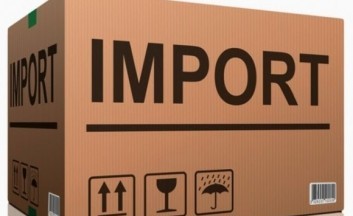Belarus’ ‘know-how’: import restrictions for budget’s benefit
 The situation has not changed
The situation has not changed

The new accounting and taxation rules have been introduced in Belarus, which considerably adjust financial activity of importers-intermediaries. In October, importers will be prompted to seek substantial sums to repay tax liabilities to the state budget. The state, however, with these new rules solves the cash-inflow-before-2015 problem at the cost of additional expenses for businesses, and accelerates inflation.
As of July 24th, Decree no 361 took effect, which amended some taxation and accounting rules.
As of July 24th, a 90-day delay is introduced on the right to deduct import VAT for companies importing and selling products in the same state. The aforementioned Decree shall not affect the interests of large industrial enterprises, which import own raw materials for further processing. In practice, this provision means that, most companies with quarterly VAT-payment period when transferring tax for the Q3 2014 (until October 22nd) will need to seek additional amount equivalent to the import VAT for the entire period from July 24th until the end of Q3 and list it in the budget. This rule will be valid until the end of 2014.
For the government, this new rule means that it will receive an interest-free loan for a 90-day period from organizations importing goods, mainly consumer goods. Taking into account the overall situation with the profitability of trade and intermediaries, in most cases, importers will have either to use available funds of the founders, or apply for bank loans. These measures will imply additional costs for business and might entail 5%-15% price-hikes on goods depending on seasonality and interest rates on loans.
In October, the state will receive a significant inflow of VAT payments to the budget, because the mechanism of deferred liabilities to offset the VAT paid will take effect. The pressure on the foreign exchange market will be eased, as importers will decrease their supply due to increased prices on goods. The banking system will have a significant amount of new borrowers, as importers will be prompted to resort to loans. The Government will note the growth in prices, and inflation limits will be exceeded, but foreign trade deficit will decrease. Domestic goods will receive somewhat competitive advantage over imported goods, which, in turn, might reduce domestic producers’ stocks of consumer goods.
Meanwhile, enterprises, which use a significant amount of imported raw materials purchased on the domestic market for their own production, will not see a significant improvement due to higher prices on raw materials on the domestic market. Consequently, prices on goods, produced by these enterprises will go up.
The state has once again changed the rules of the game for business in order to achieve its own short-term objectives. The population will feel the effects of the new rules through the rise in prices for imported goods and the deterioration of the goods’ assortment in retailers.
Subscribe to our newsletter




Situation in Belarus
Constitutional referendum: main consequences


 Video
Video
How to count the political prisoners: are the new criteria needed?


 Video
Video
Paternalism In Decline, Belarusian Euroscepticism, And The Influence Of Russia


 Video
Video












